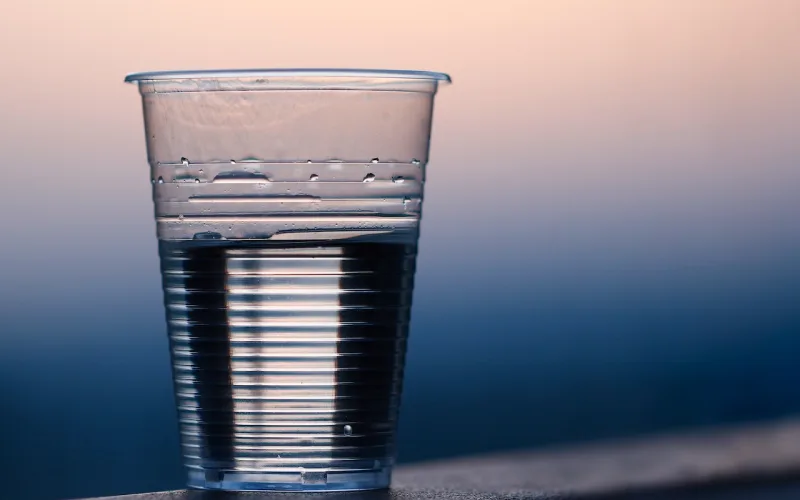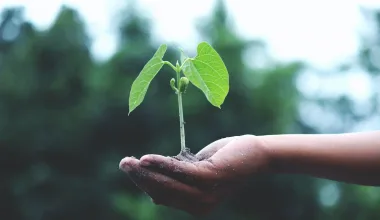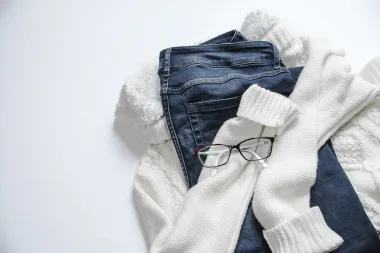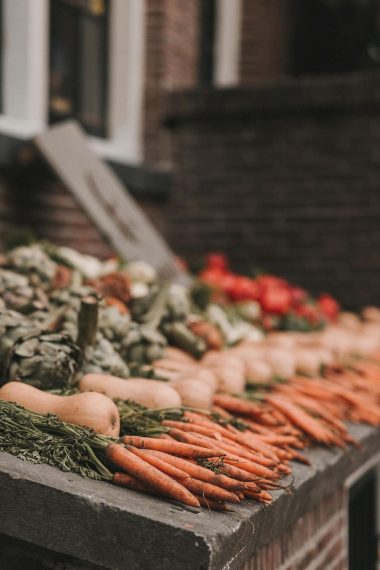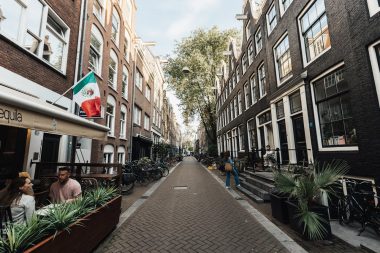Last Updated on June 27, 2023 by Ecologica Life
You want to do your part for the planet and prevent the plastic apocalypse. It is estimated that around 400 million tonnes of plastic are produced every year. Despite this, you don’t have the time to research and implement plastic-free alternatives. Sound familiar?
Don’t worry, we at Ecologica.life understand your struggle and we have good news. We are going to give you with some quick but effective tips on how to reduce plastic in your daily life. We will focus on things that are relatively easy to implement, but that can also have a big impact.
This article is aimed at people who don’t have the time, or perhaps the money to go completely plastic-free.
We say this because living 100% plastic-free requires research. For example, you will need to find places in your area where you can buy plastic-free groceries. In other instances, swapping plastic products for non-plastic products may be worthwhile, but can be more expensive.
That is why we wanted to focus on the easiest and most effective things you can do. However, if you want to tackle plastic in every aspect of your life, then you can read this guide from myplasticfreelife. It has a much more comprehensive list than we have included here.
Table of Contents
1. Invest in a Reusable Water Bottle
Instead of buying plastic bottles, invest in a reusable water bottle. Not only will you reduce plastic waste, but you’ll also save money in the long run. Remember to refill your water bottle before leaving the house. That way, you won’t be tempted to buy a disposable bottle when you’re out and about.
If the water supplied in your area isn’t ideal, consider investing in a water filter.
2. Bring Your Own Shopping Bags
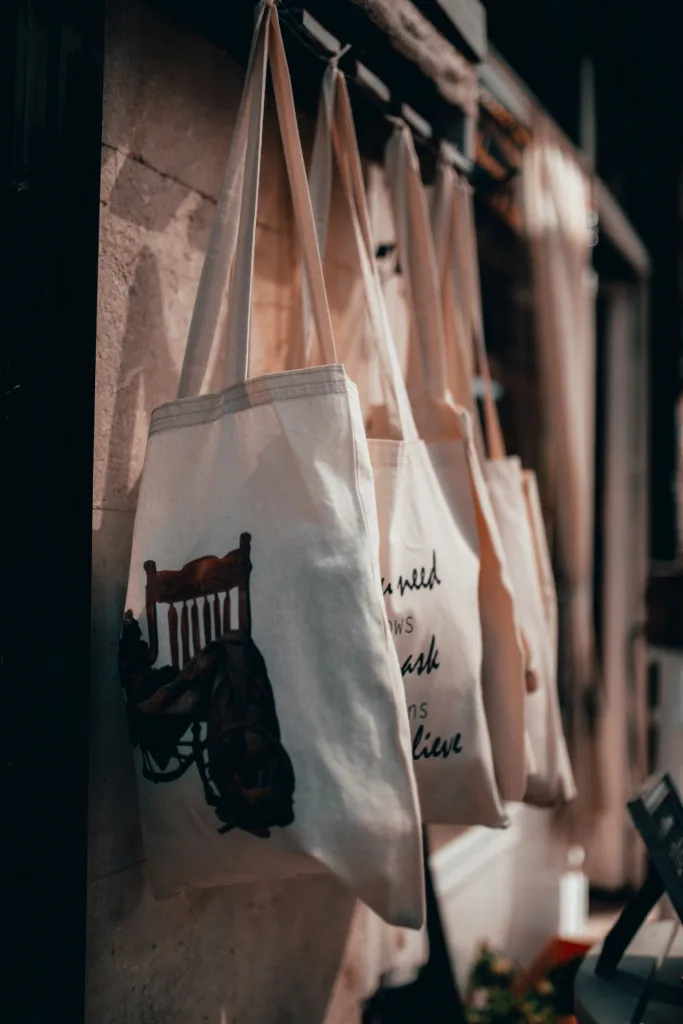
One of the easiest and most effective ways to reduce plastic usage is to carry your own reusable shopping bags. Keeping a few in your car or bag will ensure that you have them handy when you need them. You can even make your own tote bag to carry with you.
3. Say No to Plastic Straws
Refuse plastic straws at restaurants or when ordering drinks to go. If you like using straws, consider carrying your own reusable straw made from bamboo, steel, or glass.

4. Use Reusable Coffee Cups
Most disposable “paper” coffee cups are lined with plastic and cannot be recycled. What’s more, these plastic-lined “paper” cups will release millions of microplastics into your drink.
By bringing your own reusable coffee cup, you can help reduce this waste. Some coffee shops, such as Starbucks, offer discounts to customers who bring their own cups.
5. Opt for Loose Produce
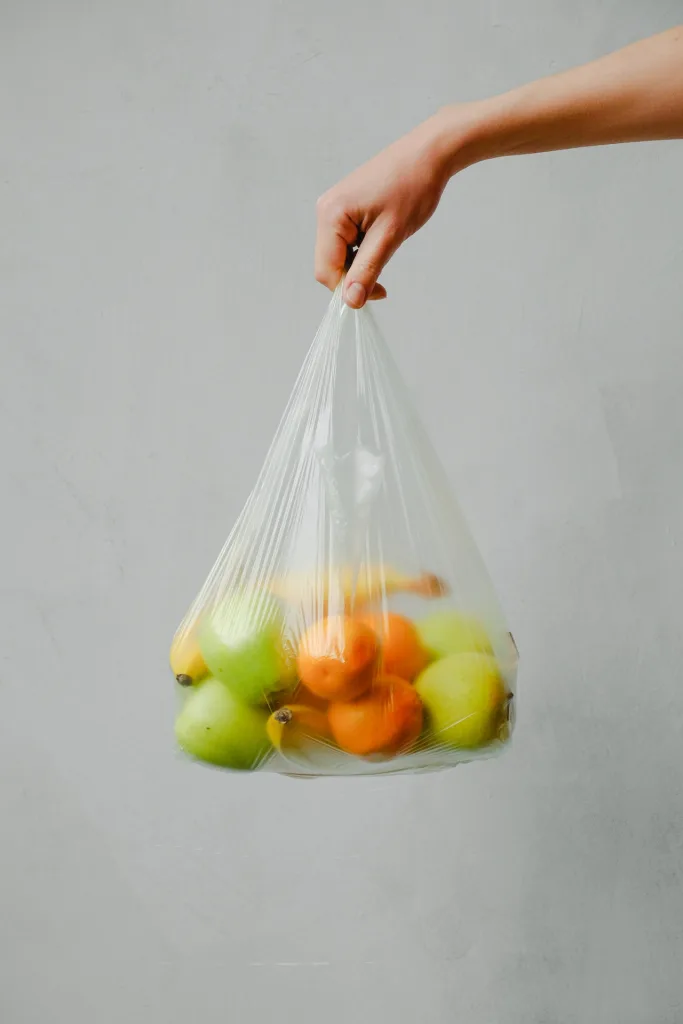
Instead of choosing pre-packaged fruit and vegetables, choose loose produce. But don’t we put loose produce in those plastic wrap bags anyway I hear you say. You can put your loose produce together in your basket or reusable bag.
Worried about your produce getting dirty? Remember that fruit and vegetables are grown in dirt, and we wash them before we eat them anyway, right?
This option has two benefits. It reduces plastic packaging waste and you to buy only what you need, thus reducing food waste.
6. Choose Carton Over Plastic
When given the choice, opt for sustainable packaging materials such as carton or cardboard. Cardboard is easier to recycle and biodegrades faster. For example, many bars of hand soap come in carton packaging.
7. Avoid Plastic Cutlery
Instead of using disposable plastic cutlery, carry a set of reusable cutlery with you. Many options are compact and lightweight, making them easy to carry in your bag.
8. Use a Razor with Replaceable Blades or Go Electric
Rather than using disposable razors, choose a razor with replaceable blades. This not only reduces plastic waste but often provides a closer shave.
Alternatively, you can use an electric razor. They may or may not give you as close a shave as their manual counterparts, but they have a longer lifespan.
9. Avoid Microbeads (Cosmetics)
Many personal care products contain tiny plastic particles called microbeads. These are harmful to marine life and often end up in our food chain. Check product labels and avoid those containing polyethylene (PE), polypropylene (PP), polyethylene terephthalate (PET), polymethyl methacrylate (PMMA), polytetrafluoroethylene (PTFE) and nylon.
10. Buy Sustainable Clothing
From an environmental perspective, the conventional fashion industry is one of the biggest polluters.
We’ve written a whole article about choosing sustainable clothing, so we won’t delve too deeply into it here. In short, you should choose organic or recycled plastics when possible. If you want to reduce plastic, don’t buy polyester, nylon, or acrylic fabrics, which are essentially types of plastic. Don’t buy rayon either, as it’s quite toxic.
Sustainable fashion often considers social fairness, supporting fair trade practices and safe working conditions. By buying sustainable clothing we are also investing in these concepts.
11. Start a Compost Pile
You may be wondering how can starting a compost pile reduce plastic waste. By composting your organic waste, you reduce the amount of plastic bin bags you throw away. Plus, you’ll also create nutrient-rich soil for your sustainable garden.
The problem with food waste is that it doesn’t break down well in landfills. It tends to release harmful greenhouse gases like methane into the atmosphere.
By taking this waste and composting it, we create healthy soil and reduce greenhouse gas emissions.
Healthy, nutrient-rich soil is necessary for productive agriculture. Something the modern farming industry does not focus on. Healthy soil also plays a key role in sequestering carbon and mitigating climate change. If you want to know more information about the power of healthy soil, we recommend you watch the documentary “The Need to Grow“.
Now you might argue that you don’t have a garden so why should you compost? This is a fair point. But you could always consider buying some window plants.
Alternatively, donate your compost to a local school, garden centre or farm. The Oddbox provides some information about how to compost without a garden.
Why we Didn’t Include Recycling in our List
If you have made it this far into the list, you may have spotted something interesting. We didn’t include recycling in our top tips! Why not?
The focus of the provided tips was on reducing the use of plastic in the first place. This aligns with the ‘reduce, reuse, recycle’ waste hierarchy that environmental experts promote.
While recycling is an important part of waste management, it is often seen as a last resort after reducing and reusing.
In the case of plastics, not all types are recyclable, and the recycling process itself can be energy intensive. Furthermore, recycling doesn’t completely eliminate plastic waste.
Most plastics, even when recycled, are downgraded to other products that eventually end up in landfills or the environment. What’s more, recycled plastics may even be a health hazard.
That being said, if you must use plastic, it is good practice to choose recyclable options and make sure they end up in the recycling bin. But keep in mind the ‘reduce, reuse, recycle’ hierarchy. Aim to reduce and reuse first before resorting to recycling.
